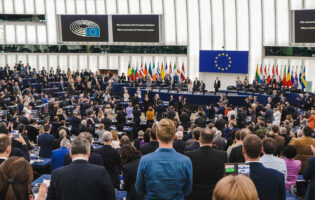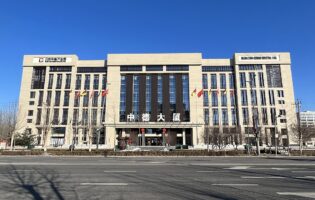AGI News
The Trade-Climate Nexus and the Future of the Global Trading System


Peter S. Rashish
Vice President; Director, Geoeconomics Program
Peter S. Rashish, who counts over 30 years of experience counseling corporations, think tanks, foundations, and international organizations on transatlantic trade and economic strategy, is Vice President and Director of the Geoeconomics Program at AICGS. He also writes The Wider Atlantic blog.
Mr. Rashish has served as Vice President for Europe and Eurasia at the U.S. Chamber of Commerce, where he spearheaded the Chamber’s advocacy ahead of the launch of the Transatlantic Trade and Investment Partnership. Previously, Mr. Rashish was a Senior Advisor for Europe at McLarty Associates, Executive Vice President of the European Institute, and a staff member and consultant at the International Energy Agency, the World Bank, UNCTAD, the Atlantic Council, the Bertelsmann Foundation, and the German Marshall Fund.
Mr. Rashish has testified before the House Financial Services Subcommittee on International Monetary Policy and Trade and the House Foreign Affairs Subcommittee on Europe and Eurasia and has advised three U.S. presidential campaigns. He has been a featured speaker at the Munich Security Conference, the Aspen Ideas Festival, and the Salzburg Global Seminar and is a member of the Board of Directors of the Jean Monnet Institute in Paris and a Senior Advisor to the European Policy Centre in Brussels. His commentaries have been published in The New York Times, the Financial Times, The Wall Street Journal, Foreign Policy, and The National Interest, and he has appeared on PBS, CNBC, CNN, and NPR.
He earned a BA from Harvard College and an MPhil in international relations from Oxford University. He speaks French, German, Italian, and Spanish.
Ahead of the UN Climate Change Conference (COP26) and the World Trade Organization Ministerial Conference, both in November 2021, Geoeconomics Program Director Peter Rashish authored a report for the Konrad Adenauer Foundation on “The Trade-Climate Nexus and the Future of the Global Trading System.”
The report examines the synergies and tensions between trade and climate policies and presents a number of policy options, including carbon border adjustment mechanisms, a climate club, the application of the national security provisions of U.S. Section 232, supply chains, and in the context of the World Trade Organization the role of Article XX exceptions, a climate waiver, agreements on environmental goods and services, and subsidies.
Among the key findings of the report:
- U.S.-EU negotiations on carbon border adjustment mechanisms (CBAM) will be the test case for transatlantic and multilateral efforts to reconcile trade and climate policies. If the EU’s CBAM planned for 2026 were to be put in place ahead of alignment with any similar efforts by the United States, U.S. exports could be faced with EU tariffs. Without U.S.-EU harmony on CBAM it is hard to imagine that there will be enough goodwill between them to create other important tools to fight climate change like a climate club of like-minded countries, a WTO climate waiver, or updating WTO rules.
- Reforming the rules of the multilateral trading system so they strike a better balance between free trade and preservation of the climate is an important task for the United States, the European Union, and the global economy more broadly. While trade and climate goals need not be in conflict with each other over the long term, it is challenging to imagine countries combating climate change without some scope for measures that may restrict trade in the short term.
- The idea that trade policy should be about more than economic efficiency is not a new notion, but one that often remained implicit. It has now come into full view. How to strike the right balance among the three legs of what could be called the “Prosperity-Values-Security Triangle” is now an inescapable framework for thinking about the role of trade and for effective trade policymaking. The interaction between trade and climate policies has gained prominence in this context.
This policy report was originally published by the Konrad Adenauer Foundation.









